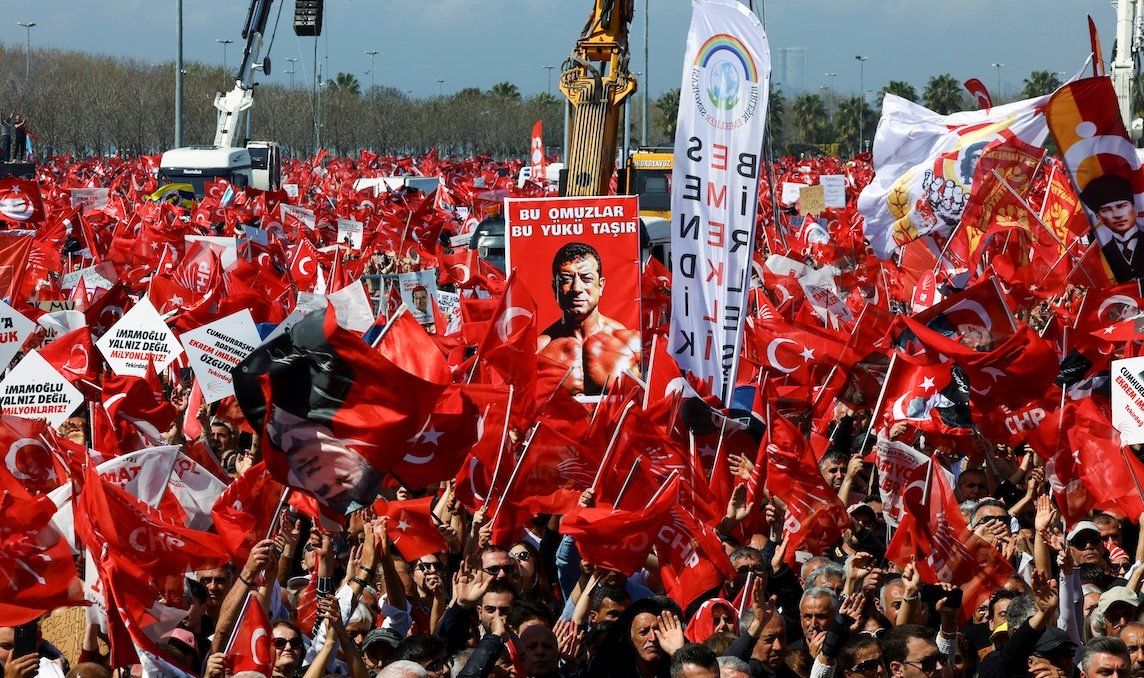Five days after the Republican People’s Party, or CHP, said it would no longer hold protests against Turkish President Recep Tayyip Erdoğan over the arrest of its presidential candidate, Istanbul Mayor Ekrem Imamoglu, hundreds of thousands of people flooded the streets of the capital on Saturday. Now, the CHP has vowed to continue the protests until the authorities release Imamoglu and clear him to run for the presidency.
Fall from grace. Just three weeks ago, Erdogan’s government was on a winning streak. The Assad regime — a staunch opponent — had fallen in Syria, a rebel Kurdish group had laid down their weapons, and the Turkish economy was looking relatively rosy. Now, the Turkish leader is on his back foot. Erdogan has tried to crush the rebellion, arresting thousands of protestors, but this latest protest suggests that the demonstrators are in it for the long haul. And the Turkish economy is now in retreat.
It’s strictly business. A crackdown on journalists continues, with several having been detained in recent days. Swedish reporter Joakim Medin was arrested as soon as he touched down in Turkey on Thursday for allegedly insulting the president. This followed the arrest and deportation of BBC reporter Mark Lowen earlier in the week.
Stern words. “This is more than the slow erosion of democracy. It is the deliberate dismantling of our republic’s institutional foundations,” the imprisoned Imamoglu wrote in a New York Times op-ed. The opposition leader also panned democratic governments across the globe for failing to denounce the Turkish government. “Their silence is deafening,” he wrote.
But there have been demonstrations in European cities in solidarity with the protesters in Istanbul, and many inside Turkey and around the world are wondering whether the man who has led the bicontinental country since 2003 can hang on amid the uproar.
